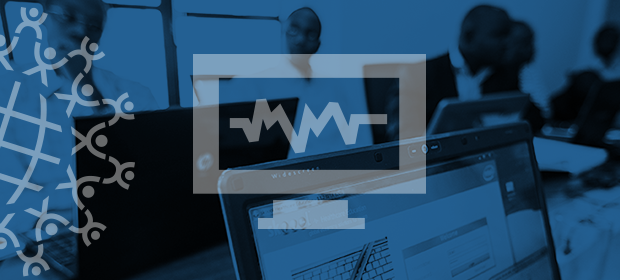Where We Work
See our interactive map


“You want a revolution? I want a revelation.” —Angelica Schuyler, Hamilton the musical
There is no denying a data revolution is underway in global development.
The Millennium Development Goals (MDGs) agreed to in 2000 represented a breakthrough moment when for the first time, the development community agreed upon and tracked key targets for 2015. For the Sustainable Development Goals (SDGs) agreed to last year with 2030 targets, the multidisciplinary Global Partnership for Sustainable Development Data has been established “to convene, connect, and catalyze” effective use of data to track progress. The World Bank, USAID, and WHO last year set forth a Roadmap for Health Measurement and Accountability.
Only when all health workers have the data they need can global health goals be realized.
And just last month at the World Health Assembly, health ministers unanimously voted to ratify the first ever Global Strategy on Human Resources for Health called Workforce 2030, which includes milestones and a strong call to strengthen data for the health workforce.
Global initiatives and strategies like these rightly call for high-level standardization, disaggregation, and infrastructure support for better access to data at the country level, all of which are essential to inform policy and resource allocation.
However, here is a revelation from the front lines of health: the data revolution is weakened until those responsible for delivering care can fully participate. Only when all health workers have the timely, accurate, and useful data they need to provide the best care to their communities can global health goals be realized.
On the front lines, health workers are often responsible for so much more than just delivering care. In places like Zambia’s rural communities, many of the daily tasks of nurses and midwives rely on data—monitoring staffing, overseeing service delivery, following up with patients, and tracking health outcomes.
These frontline health workers often lack the support, capacity, or infrastructure needed to interact with data in a meaningful way.
How can the global health community help frontline health workers to fully participate in the data revolution?
The first step is to listen and understand the data challenges of the front lines from those who are experiencing it.
Building on a long-standing partnership with IntraHealth International, Johnson & Johnson and several other partners including the University of Zambia, mPowering Frontline Health Workers, International Council of Nurses, and Dalhousie University WHO Collaborating Center recently engaged with Zambian health leaders to help strengthen Zambia’s community frontline health teams and the nurses who lead them.
We must include basic data skills when training frontline health workers.
To start, we spoke with many nurses, community health workers, and other key stakeholders, who candidly told us about the key gaps in information flow, and specific challenges to getting the right data to the right people at the right time. Conversations like these help to reveal the real gaps and barriers to effective use of data.
With barriers identified, we can tailor capacity-building efforts to address these needs, better empowering those on the front lines to be emissaries of the data needed to grasp realities on the ground.
This means that in addition to going beyond clinical skills to train frontline health workers in topics such as leadership and management, we must include basic data skills development—how to record data, how to interpret data visuals, and how to use data to help make decisions. While “data intermediaries” can potentially help interpret and translate data at certain levels, the reality is that in many rural communities, it is frontline health workers who must work to understand and use data daily as they strive to provide effective care.
While continuing the global effort to improve data, we cannot loose sight of improving the capacity of those gathering the data to do it well and with meaningful benefits at the local level.
The data revolution will not yield lasting, transformative results for global health unless those on the front lines of delivering care are engaged, empowered, and leading the way. Our global efforts to achieve the SDGs with better and more insightful data at the global level will fall short if those at the community level, leading in implementation, are not a key part of the process.
By improving the capacity and skills of frontline health workers, we engage them not only on the front lines of care but also on the front lines of the data revolution. And they are the revelation we need.
This post originally appeared on the Frontline Health Workers Coalition blog.
Get the latest updates from the blog and eNews




